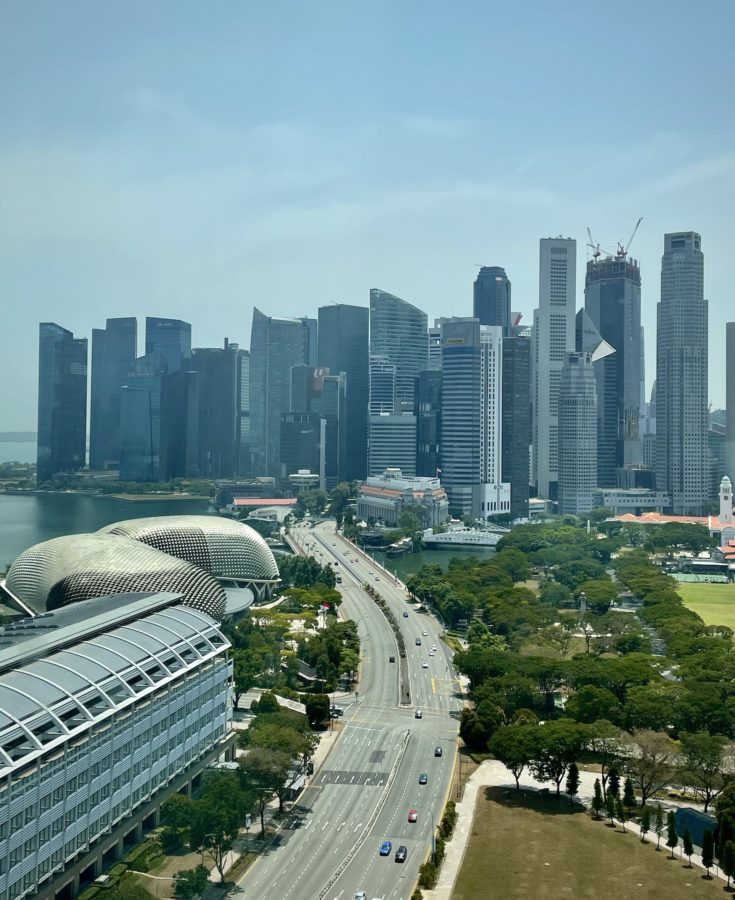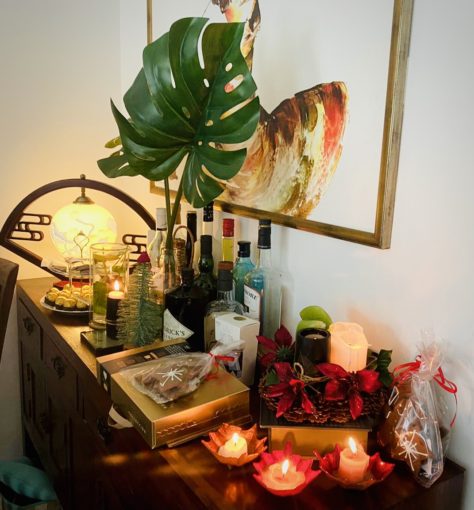
Rethinking Retirement Strategy Due To Covid Pandemic
Covid-19 has done more to change mindset, lifestyle, routine, work, social and personal habits than anything else in recent history. What one used to think of as ideal is no longer so, what used to be normal is no longer possible and what seems to be well-planned in the past even seems quite stupid now.
That’s exactly how I felt about the retirement lifestyle my significant other and I had so thoughtfully set up. Being a transnational couple – he is Dutch while I am Singaporean – we naturally opted to set up bases in both our home countries to ”enjoy the best of both worlds”, as we often tell each other, friends and acquaintances.
We used to shuttle 2-3 times a year between Holland and Singapore, choosing to spend our time in the Lowlands during months when it is nice to be in the midst of nature: taking long walks in the woods, plucking wild tulips and sunflowers during bicycle trips to decorate our home, enjoying a picnic basket in canal rides, taking road trips to France, Italy, Germany staying at quaint bed-and-breakfasts.

Winter months and mid summer when it gets really crowded in Europe we would fly east to our 2nd home in the heart of Singapore, enjoying modern conveniences the cosmopolitan city state offers: meals with family and relatives at trendy restaurants, organising Christmas and Lunar New Year do’s at home, having friends over for cosy drinks, dinner, lazy brunches and hosting visiting friends at our apartment.
The ongoing pandemic, however, has forced a re-think. We made the decision to shut down our Singapore base end of 2020. When we left early February 2020 after Chinese New Year festivity, we had no idea it would be 9 months before we would return, waiting hopefully in vain for the mandatory 2-week hotel quarantine to be lifted. Imagine paying a whole year’s rent and related expenses for just 3 months of stay!
When we eventually returned mid-November, it was to a home filled with dust and dirt, despite windows and doors being shut. Our clothes, leather shoes and bags had mould stains, most of which had to be disposed as they could not be cleaned or salvaged. Our plants had withered as neither my family or our helper was allowed during the Circuit Breaker period.

Simply put: no point in keeping 2 bases if we cannot travel freely and regularly between them. Much better to just rent a serviced apartment, AirBnB or hotel whenever we come back.
Yes, that means travelling with more luggage and not being surrounded by our own stuff for that home-away-from-home feeling. But on the other hand, we save on:
- Fixed long term rental
- Utilities, gas and water
- Internet service
- Part-time cleaner
- Maintenance costs borne by tenants (up to S$150 per repair in our case)
- 2 sets of furniture and furnishing
- 2 sets of clothing, shoes, bags….and never remembering which home I left my pair of baby blue Gucci heels.
I know similar stories of folks with weekend homes in Johor Bahru where they have not been able to visit for over a year, since enactment of Movement Control Order (MCO) by the Malaysia authority in March 2020. Despite MCO being lifted on 4 March 2021, overseas visitors are restricted to business travellers and holders of the Malaysia My 2nd Home (MM2H) visa program and a few other exceptions. An Entry Permit and a Letter of Undertaking agreeing to bear all quarantine and treatment costs were required. On top of that, upon returning to Singapore a 2-week quarantine cost of S$2,500 per person apply, rendering visits impractical and costly.
In Europe, the situation is worse as many countries try to curb infection surge by introducing curfews, something not seen since the 2nd World War. These curfews are layered over complete to partial lock-downs where hotels, restaurants, shops and all other non-essential services are required to be shut. In France the curfew starts from 6pm through 6am; The Netherlands from 9pm to 4.30am and in Germany between 9pm to 5am, varying between cities according to the severity of infection. Thankfully, the curfew in the Netherlands has been lifted May 2021.
Some of our friends who own farm cottages in France or ski apartments in Switzerland have not been able to travel due to border closures and travel restrictions. What used to be a region of unrestricted travel within the European Union has now been brought to almost a standstill, although the borders are porous. And the worst part is not knowing when all these restrictions will ease so no plans can be made with any degree of certainty.
For most people, a second home is to maintain a convenient base for frequent travel, providing a sense of home, ability to host visiting family and friends and as a cosy getaway to escape from primary residence, especially during winter.
A second home allows one to save on hotel rooms, reduces booking hassles, allowing personal belongings to imbibe a sense of familiarity and the ability to travel light with just carry-on’s. Do these advantages still hold up against current Covid situation and perhaps post Covid-19 new normal?
For us, the decision to shut down our base in Singapore was mainly economic, made easier by the fact that the apartment was rented instead of owned. It was a matter of effecting our diplomatic clause, discarding what we no longer needed and packing those we do for shipment to Holland.

Imagine if we had bought and owned our apartment in Singapore. Making the decision to shut down would have been more difficult with more implications. This is the reason why I am a big advocate of buying properties to rent out for income stream and renting to stay.
If you currently own a pied-a-terre or contemplating to have one, especially overseas, the time to re-evaluate is now. Amidst the new Covid circumstances, is it still smart to keep a 2nd home with enforced restricted usage but ongoing holding and maintenance costs? The premise of enjoyment has disappeared.
The moment we ended our lease, the weight of responsibility to upkeep, maintain and pay for a long-term rental apartment lifted immediately, bringing a sense of liberation…but it was also tinged with a little sadness. The realisation that the next time I’m back, I will be a visitor as I no longer have a place to lay my hat. It signals a certain severing of ties, a sort of turning away.
_________________________
Terugkomen is niet hetzelfde als blijven.
_________________________

But I quickly snapped out of it, knowing that once things return to normal, I am only 13 hours’ flight away from home. And ‘home’ is where my heart is, regardless if it is a hotel room or serviced apartment. When this whole Covid episode blows over, we can take on long-term lease again and resume our annual multiple trips.
Beyond freedom and cost-saving, giving up the apartment also made me feel more plugged-in into the new sharing economy, where the notion of pay-per-use reigns over ownership and long-term commitment. I am hugely excited by the likelihood of more frequent and longer travels within Asia when we come back since we are no longer rooted to a fixed apartment. And the savings from our apartment expenses can be put to good use to fund these travels when invested wisely……where else but hospitality REITs? 🙂
Plus always knowing where my pair of baby blue Gucci heels is…priceless!
Lesser is more,
Savvy Maverick
